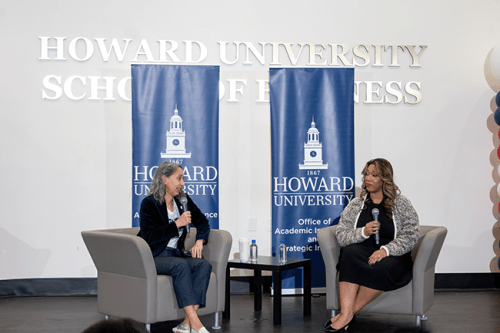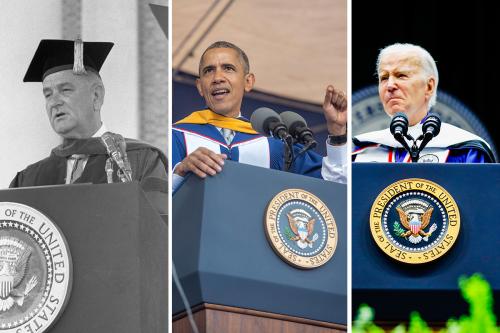WASHINGTON - The National Science Foundation awarded $2.4 million to support the Broadening Participation Research Center for the Development of Identity and Motivation of African American Students in STEM. Howard University will lead the Center, which entails collaboration with Morehouse College, Winston-Salem State University, and Coppin State University. The Center’s research will examine the nature of identity and motivation among students in STEM and will use artificial intelligence and narrative studies as significant tools leveraged to gain insight.
“NSF’s investment in this collaboration represents a profound commitment to the psychological science of broadening participation. The investment will enable our research leadership teams at our respective institutions to strengthen our capacity for engaging in team science that focuses on the psychological strengths leveraged by African Americans to promote excellence and success in STEM,” said Cynthia Winston-Proctor, Ph.D., principal investigator, and Howard University professor of psychology.
The Center’s work will be conceptually grounded in race-focused psychological science theory and multi-method research design (e.g. quantitative, qualitative, mixed methods). This conceptual focus will enable research inquiry that centers on identity development, engagement, persistence, and African American achievement within various types of STEM contexts (e.g. HBCUs; K-12 education).
“We are excited about the work of the Center and the difference it will make in expanding the number of students who enter and succeed in STEM fields. We know that disciplinary integration is a hallmark of HBCU curricula. The Center’s interdisciplinary approach to understanding African American student motivation will help codify the work HBCUs do so well which will, in turn, help to build capacity in the short term while diversifying the STEM workforce in the long term,” said Dana A. Williams, Ph.D., interim dean of the Graduate School at Howard University. To help foster the multidisciplinary collaboration the project requires, the Center will be housed in the Graduate School.
“Our new Broadening Participation Research Center sits on the shoulders of generations of HBCU scholars and scientists, and we are proud to continue the tradition of creating and using knowledge to make positive educational change for African Americans,” said Kimberley Edelin Freeman, Ph.D., principal investigator, Howard professor of educational psychology, and chair of the Department of Human Development and Psychoeducational Studies.
Consistent with the University’s Howard Forward strategic priority, Inspire New Knowledge, and Enhance Academic Excellence, the Center will offer a unique doctoral training experience for students. No other doctoral training in the country offers students training in the psychological science of broadening participation that is anchored in the intersection of the fields of educational psychology, narrative personality psychology, and artificial intelligence. In addition, this intersection brings together Howard University faculty from the College of Arts & Sciences, School of Education, and the Graduate School of Arts and Sciences to benefit learning and instruction of undergraduate students at Howard’s partner institutions.
# # #
About Howard University
Founded in 1867, Howard University is a private, research university that is comprised of 13 schools and colleges. Students pursue studies in more than 120 areas leading to undergraduate, graduate and professional degrees. The University operates with a commitment to Excellence in Truth and Service and has produced one Schwarzman Scholar, three Marshall Scholars, four Rhodes Scholars, 11 Truman Scholars, 25 Pickering Fellows and more than 165 Fulbright Scholars. Howard also produces more on-campus African-American Ph.D. recipients than any other university in the United States. For more information on Howard University, visit www.howard.edu
Media Contact: Imani Pope-Johns, Imani.popejohns@howard.edu




